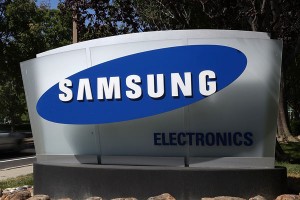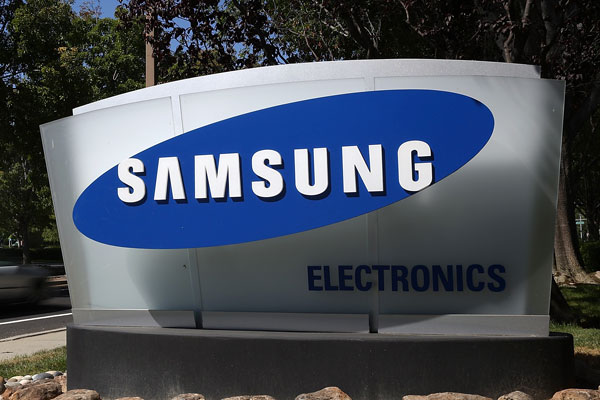
(AFP Photo)
Samsung’s market capitalisation reached $200bn in 2012, said President of Samsung in the MENA region Kyung-tae Bae, during the company’s recent 2013 Forum, hosted in Dubai.
Bae added that the company’s strategy this year would focus on marketing new products that provided greater innovation, including “cameras equipped with Wi-Fi network technology, automated home appliances, smart grids and smart TV’s that can run apps connected to the internet”.
Televisions are a particularly important sector for Samsung consumer electronics segment, and accounted for 19% of the company’s overall sales and 18% of its revenue growth in 2012. Bae confirmed that Samsung’s televisions this year would focus on enhanced motion capabilities and would include evolution kits.
In 2013 Samsung will establish its first factory in the Middle East, in Beni Suef.
According to Abdo Chlala, chief marketing officer for Samsung in the MENA region, the factory is on track to open this June and will initially focus on manufacturing television screens.
The EGP 1.7bn factory is expected to offer substantial opportunities to those who live in the area, with a number of Beni Suef residents already being trained to work there.
The factory will be located near to Sokhna Port in order to connect the company’s products to markets across the region. “One of the reasons that Beni Suef was chosen as a location for our factory is because of its close proximity to a number of Egypt’s major ports. We are extremely pleased to have this opportunity to develop Egypt’s local community, and as part of our ongoing commitment, we aim in supporting the development of a number of poor regions throughout this governorate” said Samsung.
During the event, Samsung reflected on their plans for greater growth in Egypt, as well as announcing the results of the compan’s joint study with research leaders IDG regarding the attitudes of IT executives and consumers toward “bring-your-own-devices” (BYOD) to work policies, a policy permitting employees to bring their mobile devices (laptops, tablets, smartphones) to their workplace, confirming what many in the IT world are predicting; that BYOD programs will become standard in business within the next two years, and that mobile devices will become the primary computing device for work, within five years. Given the growing and important place technology has in our everyday lives, it is unsurprising the record numbers Samsung has achieved.
In 2012, Samsung launched its flagship F8000 LED TV; the first to feature a quad-core processor, its innovative design made this TV range an instant success, advanced user experiences was improved with the viewing experience being expanded to smartphones and tablets. This year, with the introduction of the 2013 Evolution Kit, greater innovation is expected; users will gain immediate access to the latest Samsung Smart TV offerings, including quad-core CPU power and the newly updated Smart Hub.
Additionally, there is a partnership between Samsung and Orbit Showtime Network (OSN); MENA region users will have exclusive access to ‘OSN Play’ allowing them to watch TV online, anywhere and at anytime. Already available on Samsung smartphones and cameras, OSN Play will also be introduced to Samsung’s Smart TV line-up this year.
Other appliances that will be launched this year include the new Samsung refrigerator, the EcoBubbleTM washing machine, the Smart Oven and the NX300 smart camera equipped with Wi-Fi.
Also, on Samsung’s IT line-up figure the Series 7 Chronos and the portable Series 7 Ultra Notebook augmented with a new software solution called RAM accelerator, which provides up to a 150 per cent increase in speed for browsing and running apps, the Series 7 Chronos will act as a true desktop replacement.
During the conference Samsung also announced the launch of their ATIV Smart PC line-up, featuring the versatility of Windows 8 OS and compatibility with Windows 7.
In addition to their new product innovations, Samsung also emphasised its support for the development of education, highlighting the importance of innovation in the business to business (B2B) market, and the positive impact this could have on the evolution of e-learning or smart education. There is already increased governmental interest and investments going into Smart Education, and in the Middle East and North Africa, Samsung contributed by developing programs that would introduce the Smart Education experience to schools throughout the region. This year, it will be equipping five demonstration classes in four countries with easy-to-use, immersive technologies, such as Note PCs, e-boards and mobile solutions. Samsung will also offer access to more than 6,000 online textbooks which will be available via an open market content platform.



